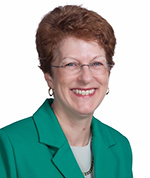Time to drop using ‘soft’ skills
04/04/18
Dr Ann Villiers was one of our fantastic keynote speakers at the 2017 CDAA conference in Brisbane. She spoke about the importance of careful use of language in career development practice and in particular, warned that the term “soft skills” is not an appropriate way to describe skills that are fundamental in the modern world of work. This blog post will elaborate on why. This is also an example of the high quality information and advice on offer at the CDAA’s annual conference. If you’d like to hear similarly interesting and useful keynotes from leaders in the field, register for the 2018 conference in Hobart.

Dr Ann Villiers, PCDAA, Mental Nutritionist®
The term ‘soft’ skills no longer has a place in our professional language.
The term is imprecise, ambiguous, and inconsistently used, relegating communication and interpersonal skills to an inferior, unimportant status. It is used unquestioningly, without considering its appropriateness, accuracy, validity or clarity.
Social skills is an accurate alternative that covers the diverse skills needed for getting along with people.
Changing a language habit like using ‘soft’ skills takes motivation and commitment. So why bother? Here are five reasons to consider.
- Precise terms enable practitioners to provide neutral, accurate, unambiguous guidance to clients and advance policy debates and research based on consistent, professional terminology.
- The Career Development Profession recognises the importance of communication and interpersonal skills in both its Professional Standards and in career management competencies outlined in the Australian Blueprint for Career Development. These documents refer to specific skills such as listening, cooperation, building rapport, and recognise their importance across the lifespan. Nowhere are these skills referred to as ‘soft’ skills. Rather, they are critical social skills.
- Research points to an increasing need for higher-order interpersonal skills so they warrant their own category that respects their universality and complexity. For example:
- The Foundation for Young Australians’ report The New Work Smarts suggests that future workers will spend less time on routine tasks and more time with people and getting value from technology. These require sophisticated social skills.
- A report to Queensland TAFE explored what skills the national economy will need in the future. The findings are ‘consistent with other research which suggests that interaction and social skills will have growing importance in future work.’ [p. 20]
- Given decades of derogatory ‘soft’ skills usage, we now need to build acceptance of the value of social skills and of the importance of building them, particularly amongst men and boys, regardless of work preferences. The quality of people’s lives depends on social skills mastery.
- The hard-soft dichotomy has no place in our skills discourse. While it has meaning in the context of information technology (hardware and software) and diplomacy (guns versus koalas or pandas), it has no valid place in distinguishing skills. Exercising technical skills cannot be divorced from using social skills and applying social skills often depends on mastering specialised, practical knowledge, such as counselling, negotiating, influencing, and presenting.
So, who will join me in changing their professional practice by dropping the use of ‘soft’ skills and adopting the use of social skills to refer to communication and interpersonal skills?
About Dr Ann Villiers
Dr Ann Villiers is Australia's only Mental Nutritionist. She specialises in helping people to think more flexibly and speak more confidently by mastering mind and language sense making processes.
With careers in academia and the public service, Ann's business includes over a decade as a career coach. In particular, Ann has focused on demystifying selection criteria, resulting in the book How to Write and Speak to Selection Criteria, now in its sixth edition.
Ann co-emceed the 2012 CDAA Canberra National Conference and has delivered multiple conference workshops. She is a Professional Member and was awarded the 2015 CDAA President's Award for Professional Leadership.